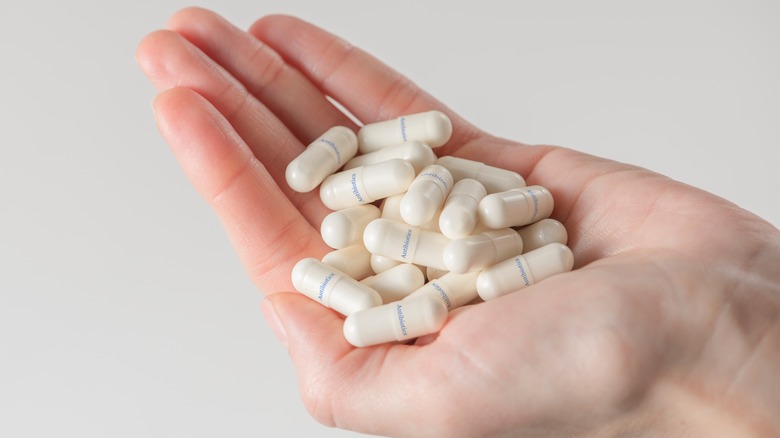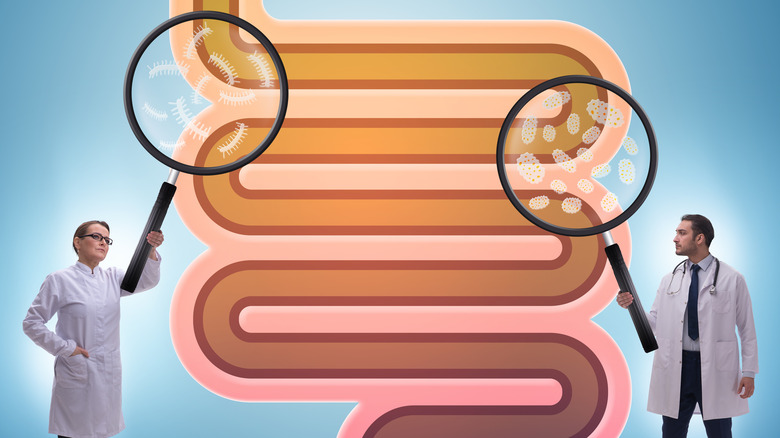What Frequent Antibiotic Use Can Do To Your Digestive Health
Antibiotics can be effective in healing an illness because they knock out harmful bacteria that cause infection, according to Mayo Clinic. The problem is that people often ask for antibiotics when they have a viral infection. The Centers for Disease Control and Prevention (CDC) estimates that 28% of antibiotics are prescribed for people who don't need them. This is an issue because when you take antibiotics and you don't actually need them, they can harm the good bacteria in your body or make harmful bacteria more resistant to antibiotics.
According to a 2020 review in Frontiers in Cellular Infection Microbiology, microbiota in the gut is important in maintaining a healthy immune system. Antibiotics can disrupt gut microbiota, and taking them in early childhood may even lead to conditions that affect the neurocognitive networks as well as the immune and gastrointestinal systems. In fact, according to a 2023 study published in Gut, taking antibiotics can increase your risk of developing inflammatory bowel disease (IBD).
Antibiotics affect the gut microbiome
The study compared data from more than 6 million residents in Denmark with no prior history of IBD. They tracked whether or not they were prescribed antibiotics between 2000 and 2018 and found that more than 90% — a little over 5.5 million — had at least one course of antibiotics. During the study period, almost 53,000 people developed IBD. Compared to the 10% who never took antibiotics, people who took at least one course of antibiotics were more likely to develop IBD. This risk was greater among people 40 and over and for those taking more than one course. IBD risk was also higher within one to two years after a course of antibiotics, but the risk began to taper off after several years.
There was only one antibiotic — nitrofurantoin — that wasn't associated with IBD. Two classes of antibiotics that specifically treat gastrointestinal pathogens — nitroimidazoles and fluoroquinolones — were associated with the highest risk of IBD. Researchers concluded that antibiotics change the microbial environment in the gut, and taking antibiotics more often made it more difficult for the intestinal microbiota to be restored to healthy levels.
The CDC states that more than 3 million people in the United States have IBD. Symptoms include diarrhea, abdominal pain, blood in the stools or rectum, weight loss, and fatigue (via Healthline). People with IBD are also more likely to develop chronic conditions such as heart disease, lung disease, arthritis, and ulcers, per the CDC.


